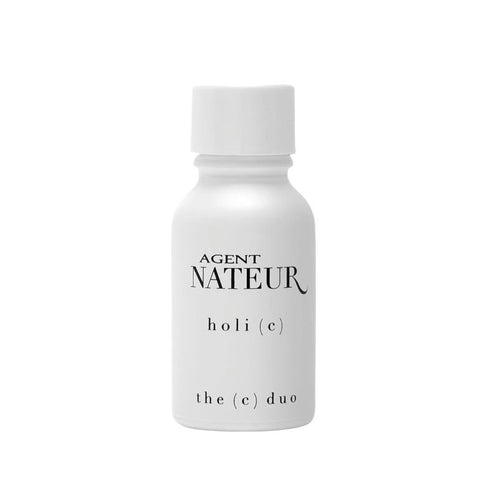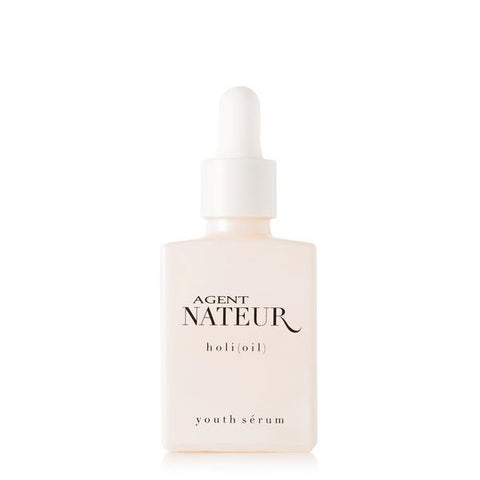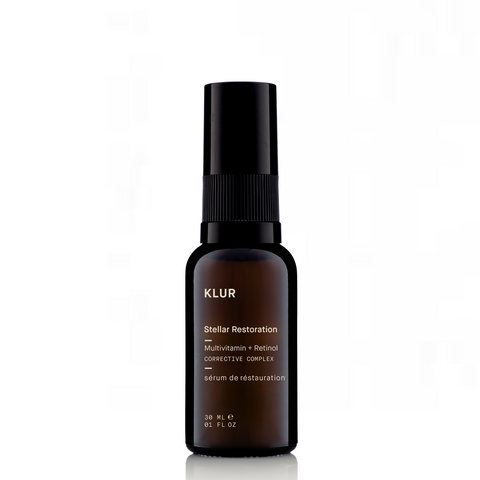Ingredient Spotlight: Vitamin C
February 25, 2020
Customer: “I recently started using this 20% L’Ascorbic Acid serum to brighten up the skin. That’s when I started having all these little acne. What should I do?”
Us: “Try skipping the L’Ascorbic Acid serum and see if the skin clears up.”
- one week later -
Customer: “You’re so right! Once I stopped using the serum all my acne cleared up!! Why’s that?”
Us: “Because not all Vitamin Cs are created equal and not everyone can use L’ascorbic acid.”
____________________________________
Benefits of Vitamin C For The Skin
- A potent antioxidant that can neutralize free radicals
- Aids in the skin’s natural regeneration process and repairs damaged skin cells
- Boosts collagen production
- Inhibits melanin production which can lighten and prevent dark spots and hyperpigmentation
Product Recommendation
KLUR
Brilliant Light Multi-Correction Repair Serum <- Click to shop
____________________________________
Side Effects of Too Much Vitamin C For The Skin
While our skin needs vitamin C without question, the vitamin in a potent, isolated form can mean you are getting too much for your skin to handle.
Reactive oxygen species (ROS) have a necessary function in the body. Too much ROS over time, of course, is a bad thing, as it can age the skin, and that is why we need antioxidants for the skin. However a regulated amount of ROS naturally produced by the body is needed to prevent bacterial, fungal and other pathogenic invasion from infecting the skin.
In addition, the skin has a delicate microbiome of bacteria that maintains a proper balance necessary for a disease-free environment. When that balance gets disrupted, for example by using too much ascorbic acid which can affect the skin’s pH level, the skin gets sick in the form of acne and dermatitis, amongst many others.
This means, too much vitamin C in the form of ascorbic acid can potentially be harmful to the skin.
____________________________________
Different forms of Vitamin C
L’Ascorbic Acid
The most potent form of vitamin C, yet also the most unstable and would easily oxidized and rendered inactive, or worse, turn into pro-oxidant, by exposure to oxygen, heat, water or UV rays, that can potentially cause skin irritations, flakiness and even acne, especially in high doses and low pH (ascorbic acid, after all, is an acid). Even wonder why your ascorbic acid serum is often yellow in color? This is how brands do to mask the fact that serum is oxidizing. It is also worthy to note that most ascorbic acid is derived from GMO corn starch, corn sugar or rich starch, which can potentially have a negative impact on the skin.
If you have sensitive skin or are prone to acne, avoid products that contain ascorbic acid. Note that none of the products Ambrosia carries contain ascorbic acid.
Ascorbyl Glucocide
A water-soluble derivative of Vitamin C. It is less potent than L’ascorbic acid but much more stable and gentle with a high pH, and thus can be used on all skin types for its antioxidant and skin-brightening properties.
Sodium Ascorbyl Phosphate
A stable, water-soluble form of vitamin C that also functions as an antioxidant and possesses skin brightening properties. Additionally, it has antimicrobial benefits. In fact, research has shown that it can reduce acne with continued use. So if you have are prone to acne, this might be the vitamin C for you.
Product Recommendation
AGENT NATEUR
holi(c) The C Duo <- Click to shop
Vitamin C from Botanical Extracts and Oils
The vitamin and mineral content, fatty acid composition, etc. in botanical oils and extracts together assist with maintaining the skin’s healthy balance. Vitamin C in extracts and oils is much more balanced and gentle, and can extend the benefits of vitamin C in its entirety, bringing the skin full-spectrum anti-inflammatory, antioxidant and brightening benefits. This form of vitamin C is perfect for sensitive skin.
____________________________________
Product Recommendations
Product Recommendation
AGENT NATEUR
holi(oil) Ageless Face Serum <- Click to shop
Product Recommendation
KLUR
Stellar Restoration Corrective Complex <- Click to shop
Product Recommendation
Agent Nateur
holi(body) Ageless Body Serum <- Click to shop
Product Recommendation
MARIE REYNOLDS LONDON
Elixir™ <- Click to shop
Product Recommendation
ANFISA
LILOU Radiant Hydra Balm <- Click to shop
Also in The Journal

The Anti-Aging Gold Standard: How Retinol Reshapes The Skin
November 12, 2025
Learn why retinol is the gold standard for anti-aging, how it works, what similar ingredients exist, and some common myths and misconceptions.

The Gut-Skin Connection: The Path to Healthy Skin
October 26, 2025
Acne, eczema, rosacea, and sensitivity can all be linked to the gut health, and even gluten? Learn all about the connection between the gut and the skin.

The Secret to Reversing Skin Aging! How Growth Factors & Peptides Help Turn Back the Clock
October 13, 2025
Tired of wrinkles, sagging skin, lack of elasticity, inflammation, dryness, and even hair loss? Learn how growth factors and peptides reverse skin aging.
+Recent Articles
-
The Anti-Aging Gold Standard: How Retinol Reshapes The Skin
November 12, 2025
-
The Gut-Skin Connection: The Path to Healthy Skin
October 26, 2025
-
The Secret to Reversing Skin Aging! How Growth Factors & Peptides Help Turn Back the Clock
October 13, 2025
-
The Best Ways and Times to Take Different Supplements
August 19, 2025
-
Luxury vs. Budget-Friendly Skincare Products——What Are Their Differences?
August 06, 2025
-
How to Prevent and Improve Post-Inflammatory Hyperpigmentation (PIH)
July 10, 2025
-
How to Prevent and Improve Post-Inflammatory Erythema (PIE)
July 08, 2025
-
The Ultimate Cleansing Guide to Improve Skin Conditions
June 03, 2025
-
Do You Have Sugar Face? How Does Sugar Affect Our Skin and Appearance?
May 20, 2025
-
Do You Have Gluten Face? How Does Gluten Affect Our Skin and Appearance?
April 15, 2025
Subscribe to get skincare knowledge delivered to your inbox!











